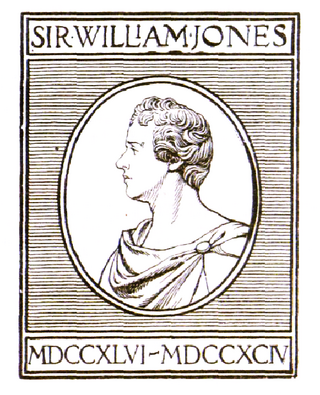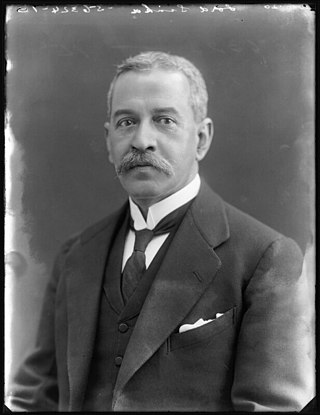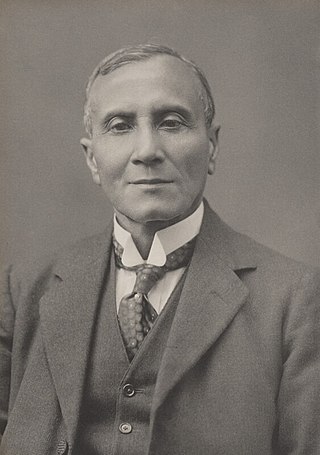Baron Sinha, of Raipur in the Presidency of Bengal, is a title in the Peerage of the United Kingdom. It was created in 1919 for Sir Satyendra Prasanna Sinha, a distinguished barrister and zamindar who was the first Indian ever to be elevated to the hereditary peerage.

The Imperial Order of the Crown of India is an order in the British honours system. The Order was established by Queen Victoria when she became Empress of India in 1878. The Order was open only to women, and no appointments have been made since the Partition of India in 1947. The Order was limited to British princesses, wives or female relatives of Indian princes and the wife or female relatives of any person who held the office of:

Charles Theophilus Metcalfe, 1st Baron Metcalfe,, known as Sir Charles Metcalfe, Bt between 1822 and 1845, was a British colonial administrator. He held appointments including acting Governor-General of India, Governor of Jamaica and Governor General of the Province of Canada.

Robert Cutlar Fergusson (1768–1838) was a Scottish lawyer and politician. He was 17th Laird of the Dumfriesshire Fergussons, seated at Craigdarroch.
In the United Kingdom, the Judge Advocate General is a judge responsible for the Court Martial process within the Royal Navy, British Army and Royal Air Force. As such the post has existed since 2006; prior to this date the Judge Advocate General's authority related to the Army and the RAF while the Judge Advocate of the Fleet was the equivalent with regard to the Royal Navy.

The Asiatic Society is an organisation founded during the Company rule in India to enhance and further the cause of "Oriental research". It was founded by the philologist William Jones on 15 January 1784 in a meeting presided over by Justice Robert Chambers in Calcutta, the then-capital of the Presidency of Fort William.

Satyendra Prasanna Sinha, 1st Baron Sinha, KCSI, PC, KC, was a prominent British Indian lawyer and statesman. He was the first Governor of Bihar and Orissa, first Indian Advocate-General of Bengal, first Indian to become a member of the Viceroy's Executive Council and the first Indian to become a member of the British ministry. He is sometimes also referred as Satyendra Prasanno Sinha or Satyendra Prasad Sinha.

Bihar and Orissa was a province of British India, which included the present-day Indian states of Bihar, Jharkhand, and parts of Odisha. The territories were conquered by the British in the 18th and 19th centuries, and were governed by the then Indian Civil Service of the Bengal Presidency, the largest administrative subdivision in British India.

Sir Richard Garth PC QC was member of parliament for Guildford from 1866 to 1868 and Chief Justice of Bengal from 1875 to 1886.

Mohit Sen was a communist intellectual. He was general secretary of the United Communist Party of India at the time of his death.

The Oriental Club in London is a Private Members’ Club established in 1824. Charles Graves described it in 1963 as fine in quality as White's but with the space of infinitely larger clubs. It is now located in Stratford Place, near Oxford Street and Bond Street. Based in an elegant building, the Oriental Club is one of the best members’ clubs for those in their 20s.

Major General Sir George Alexander William Leith, 2nd Baronet was the first Lieutenant-Governor of Prince of Wales' Island, replacing George Caunter, a magistrate who was acting superintendent following the resignation and departure of the last governor, Superintendent Major Forbes Ross MacDonald. Leith served in that position from his arrival in 1800 until 1804.

The Viceroy's Executive Council, formerly known as Council of Four and officially known as the Council of the Governor-General of India, was an advisory body and cabinet of the Governor-General of India, also known as Viceroy. It existed from 1773 to 1947 in some form or the other.

Sir Krishna Govinda Gupta was a British Indian civil servant, the sixth Indian member of the Indian Civil Service, a barrister-at-law, a prominent Bengali social reformer of the 19th century and leading Brahmo Samaj personality.
Sir William Burroughs, 1st Baronet was an Anglo-Irish judge and politician.
Following the final collapse of the Mughal Empire in 1857 and the proclamation of the British Indian Empire, the British continued to maintain and recognise many of the old Mughal and Hindu styles and titles, introducing a compound honours system which awarded those titles along with British noble and aristocratic titles and knighthoods. Uniquely, the Indian subcontinent was the only part of the British dominion where British hereditary titles were conferred upon British subjects not of European ancestry. All British titles and honours became obsolete after the formation of the modern Republic of India in 1950, though they continue to be recognised by the British government. The Portuguese gave titles and created coats of arms for its Goan citizens from the early 1700s, both Hindu and Indian Christian. These titles however lost their recognition after the Portuguese Revolution and start of the First Portuguese Republic in 1910.
The Advocate-General of Bombay was charged with advising the Government of the British administered Bombay Presidency on legal matters. The Presidency existed from 1668 to 1947. Prior to 1858, when it was administered by the East India Company, the Advocate-General was the senior law officer of that company and also the Attorney-General of the Sovereign of Great Britain. He was an ex-officio member of the Legislative Council.
Hamilton Vetch (1804–1865) was a British officer of the Bengal Army of the East India Company, who reached the rank of major-general. He was active as a political agent in Upper Assam. The alternative spelling Veitch of his family name was also used.












